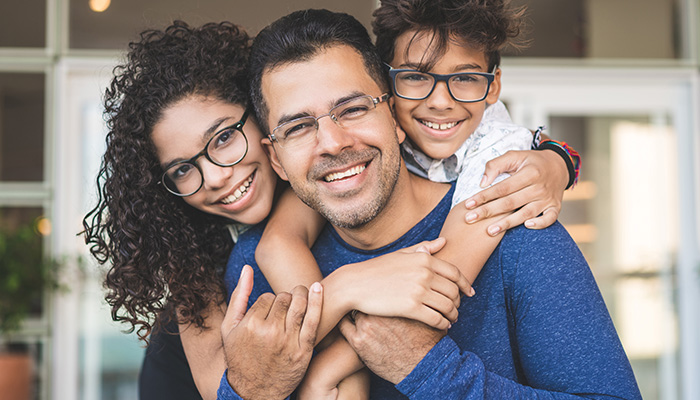Eye Exams – An Important Part of Back-to-School Prep!
By Guest Blogger Dr. Lindsay Totten
August is National Children’s Eye Health and Safety Month, and as you prepare school supplies and clothes the next size up, it’s a great time to consider how to protect and preserve the health of your kid’s eyes.
I’m Dr. Lindsay Totten, optometrist at Wise Eyes Family Eye Care in Winston-Salem, NC. I launched my practice this year with a focus on comprehensive eye care for the whole family – I’d love to see you whether you’re 4 or 104! Complete vision support means a lot more than just making sure the last line of the vision chart isn’t blurry for you or your kids.
When should my kids have an eye exam, and what’s being checked?
One thing I try to share with parents is that a “vision screening” at the Pediatrician is not the same as a comprehensive eye exam. Children need a full eye exam with an eye doctor to check that the eyes are functioning properly for their age. Optometrists check for eye alignment, binocular vision (or how the eyes work together as a team), stereoposis (or depth perception), color vision, and for focusing issues that could cause eye fatigue at school. In addition, the health of the inside of the eye can only be checked on a comprehensive, dilated eye exam.
The American Optometric Association recommends that children get their first eye exam at 6 months, their second exam at 3 years, and their third exam before 1st grade. After that, children should be seen every 1-2 years at the recommendation of their optometrist.
One common misconception is that if a child is young and healthy, then their eyes must be healthy too. In fact, there are a number of eye diseases that you can be born with, or that can develop in early childhood. The most common condition that we see is called Amblyopia, which is the scientific word for “Lazy Eye.” Amblyopia can be treated and even reversed before the age of 8, so it is important to screen for this condition much sooner, ideally between the ages of 4-5. Unfortunately, many times we see kids who are pre-teens or teenagers coming in for their first eye exam, and by then, treatment for amblyopia has a much lower rate of success.
During an eye exam, optometrists perform what’s called a “refraction” in order to see if vision can be improved with glasses. In children, this is especially important. Children who are far-sighted tend to have pretty good vision, but suffer with a lot of eyestrain in order to keep their vision clear all day. Many times we hear complaints of headaches from kids, and we can easily correct this with glasses. For kids who are near-sighted, their eyes change rapidly during childhood. It is important to update their glasses at regular intervals, sometimes every 6 months, to keep up with their growing body and changing visual demands.

What’s the deal with blue light?
Blue light is a hot topic among all parents right now – especially with the advent of “Zoom school” last year! We are using our computers and devices more than ever, and we are starting at a younger age. Prolonged exposure to blue light from screens can make the eyes feel fatigued. For this reason, some patients enjoy “blue light filters” on their glasses to help with digital eyestrain. We also recommend taking regular breaks from devices to refocus the eyes. Screen time also affects blink rate, which can result in dry, red, burning, and gritty eyes. We recommend lubrication with artificial tears on a regular basis to combat computer related dry eye. Blue light has also been shown to decrease levels of melatonin in the body, which makes it harder to sleep after prolonged screen time.
Fatigue is one thing – damage is another. The most important question to answer is: “Is blue light from screens damaging to our eyes?” Research has shown that blue light emitted from screens and devices is not powerful enough to damage the structures inside the eyes. In fact, you get more “blue light” exposure when you walk outside in natural sunlight than you do from a computer screen. We always recommend a good pair of sunglasses to protect your eyes from UV related sun damage – no matter your age!

I got my eye exam – now what?
We always check to see if glasses or contacts are needed, and we will also perform a comprehensive eye exam to detect any signs of eye disease. Our location is strategic – right next door to Twenty200 Eyewear! They’re an independent optical shop with glasses and sunglasses in a wide range of styles and price points. They’re also a 501(c)3 non-profit – every purchase helps create opportunities for people who are blind and visually impaired in our community.
- Sponsored by Twenty200 Eyewear
